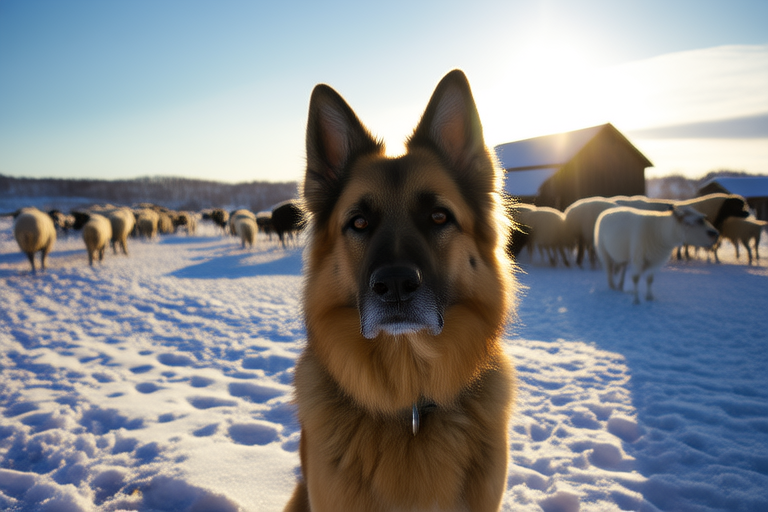Unraveling the Mystery Behind Norway’s Unique Pet Ownership Laws
Norway stands out as a country with an exceptionally unique approach to pet ownership, setting it apart from many other nations around the world. This distinctive regulatory framework is deeply rooted in historical, cultural, and ethical considerations that emphasize the importance of responsible pet ownership. Unlike some places where owning a pet can be relatively straightforward, Norway imposes stringent laws designed to ensure the well-being of both animals and their human companions.
The Historical Context and Reasons Behind These Laws
The origins of Norway’s pet ownership laws trace back to the country’s strong emphasis on animal welfare, which has been a part of its societal values for centuries. Historically, Norwegians have respected the rights of animals, and this reverence has translated into comprehensive legislation aimed at preventing cruelty and promoting humane treatment. The passage of the Animal Welfare Act in 1974 marked a significant milestone in formalizing these principles into enforceable law.
This act laid down the foundation for subsequent regulations, ensuring that all animals, whether wild or domesticated, are treated with respect and provided adequate living conditions. Over time, as urbanization increased and more people began keeping pets, additional measures were introduced to address specific concerns related to different types of animals. For instance, dogs have always been a popular choice among Norwegians, leading to detailed rules governing their ownership.
Dog Ownership Regulations: Mandatory Training and Permit Requirements
One of the most notable aspects of Norway’s pet ownership laws pertains to dog ownership. In order to own a dog legally within Norway, one must first obtain a permit from local authorities. This requirement ensures that potential owners understand the responsibilities associated with caring for a canine companion and helps prevent irresponsible breeding or abandonment.
Moreover, every dog owner in Norway is mandated to enroll their pet in basic obedience training courses. These classes teach essential commands like ‘sit,’ ‘stay,’ and ‘come,’ fostering better communication between humans and their four-legged friends. Such training not only enhances safety but also strengthens the bond between owners and their dogs. Additionally, vaccinated dogs are required to wear a collar displaying identification tags at all times.
Restrictions and Permissions for Exotic Pets
While common pets such as cats and dogs enjoy widespread popularity in Norway, owning exotic species comes with stricter guidelines. Individuals wishing to keep non-traditional animals face numerous hurdles, including securing special permits from relevant government agencies. These permissions depend heavily on factors such as the animal’s native habitat, potential impact on local ecosystems if released into the wild, and overall health risks posed by certain species.
For example, reptiles require extensive documentation regarding housing facilities, temperature control systems, and feeding schedules before approval can be granted. Similarly, avian enthusiasts desiring to house parrots or other birds must demonstrate sufficient knowledge about maintaining appropriate aviaries alongside proof of necessary vaccinations. All these precautions aim to safeguard both public health and environmental balance while allowing passionate hobbyists to pursue their interests responsibly.
Legal Responsibilities Towards Animal Welfare
A key component of Norway’s pet ownership laws revolves around enforcing high standards of care for all animals under human supervision. Owners are legally obligated to provide food, water, shelter, medical attention when needed, and opportunities for exercise according to each species’ needs. Failure to meet these criteria could result in severe penalties, including fines, confiscation of animals, and even imprisonment.
Furthermore, there exists a robust network of veterinary clinics across Norway dedicated solely to treating sick or injured animals. Pet insurance policies cover routine checkups as well as emergency surgeries, making it easier for concerned citizens to afford proper healthcare for their beloved pets. This emphasis on continuous monitoring and intervention underscores the commitment towards upholding animal welfare throughout the nation.
Influence on Human-Animal Relationships in Norwegian Society
The stringent yet compassionate nature of Norway’s pet ownership laws significantly shapes interactions between humans and animals within its borders. By instilling a sense of duty among pet owners, these regulations encourage thoughtful consideration before bringing home a new companion. As a result, relationships built upon mutual respect and understanding flourish, creating harmonious coexistence between species.
Moreover, the involvement of various stakeholders – from animal rights activists to governmental bodies – fosters a supportive environment where innovative solutions emerge continually. Community initiatives promoting spay/neuter programs, adoption drives, and educational campaigns further enhance awareness surrounding responsible pet ownership. Ultimately, this collective effort nurtures a culture wherein animals are cherished not merely as possessions but as sentient beings deserving equal rights and protections.
In conclusion, Norway’s unique approach to pet ownership exemplifies how thoughtful legislation coupled with cultural appreciation can lead to positive outcomes benefiting everyone involved. While navigating through complex regulations may seem daunting initially, adhering to them ultimately contributes towards healthier communities teeming with happy pets and conscientious caregivers alike.
